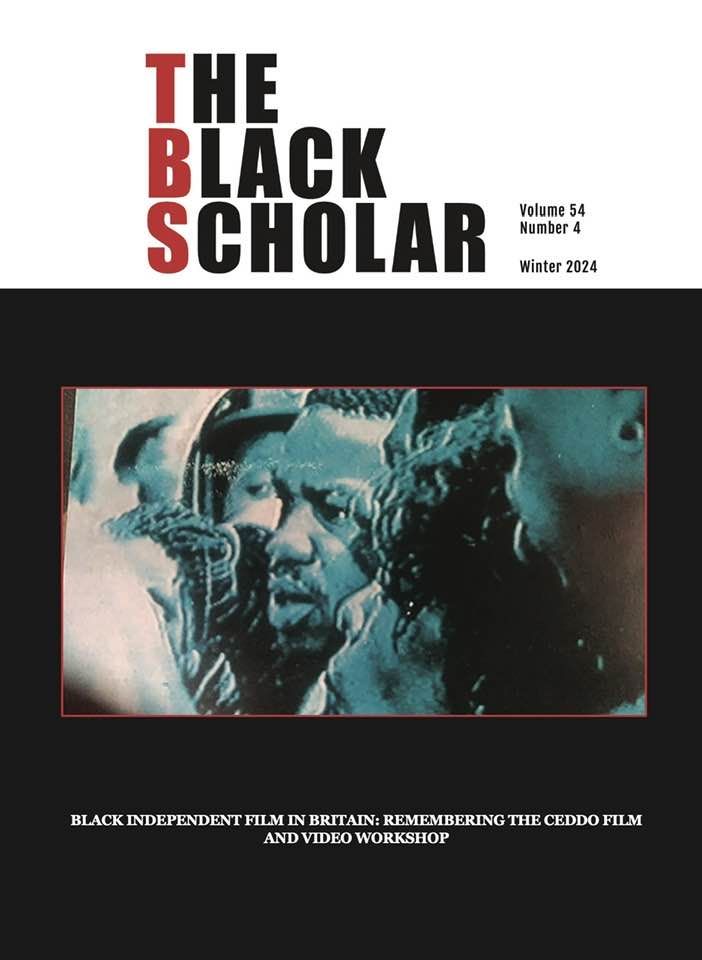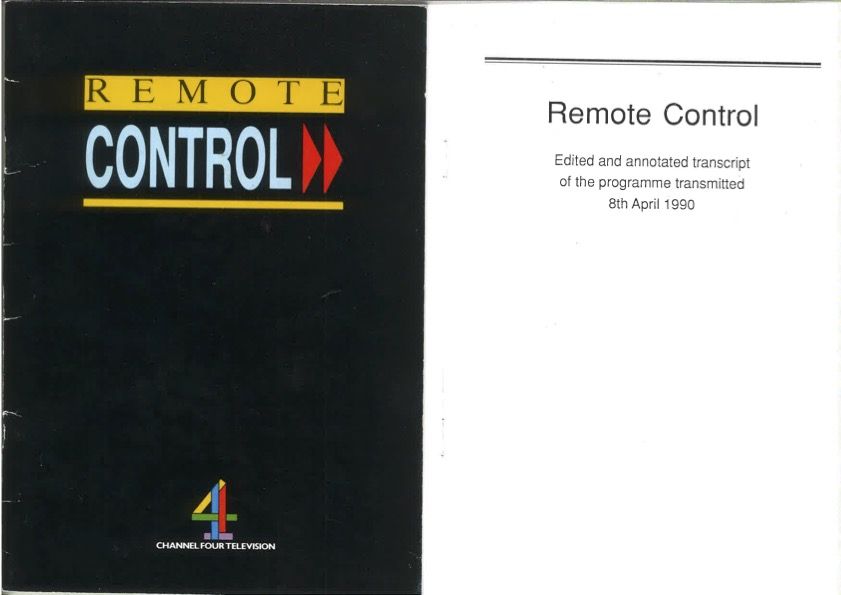Ceddo
Ceddo Film and Video Workshop was one of several black collectives set up in the 1980s with support from then-new broadcaster Channel 4 and the Greater London Council. The original members were already experienced in film and television production. Menelik Shabazz had directed Step Forward Youth (1977) and Burning An Illusion (1981); and Imruh Bakari, Riots and Rumours of Riots (1981). Both Shabazz and Bakari had worked together, and along with Henry Martin, set up Kuumba Productions, an independent company in 1982. Other founding members of Ceddo as a cooperative in 1984 were Lazell Daley, Milton Byan, Chuma Ukpabi, June Reid, Glenn Ujebe Masokoane, Cassie McFarlane, Dennis Elimina Davis. Ceddo stood out among the other collectives because of its experienced personnel and because of its genuinely African and Caribbean community focus – ‘Ceddo was founded explicitly to enable and encourage Black filmmaking by the wider Black community itself’ (The Black Scholar, 54:4, p.5, 2024).
Their work was characterised by a radical left-wing critique of British society in relation to black people and by an interest in African and Caribbean politics and history. The collective ran into trouble immediately with its first film for Channel 4, The People's Account (1985), a documentary about the Broadwater Farm riot in Tottenham, North London. The Independent Broadcasting Authority (IBA) objected to the description of the police as racist, lawless
terrorists, and to the description of the riot as a legitimate act of self-defence (see Remote Control Script, pp.20-21).
Ceddo produced documentaries on topics such as youth culture in London in Street Warriors (d. Imruh Bakari, Channel 4 tx 8/6/1986); the struggle against apartheid by South African students in We Are The Elephant (d. Glenn Ujebe Masokoane, 1987); biblical prophecy relating to Africa and African diaspora events in Time and Judgement - A Diary of a 400 Year Exile (d. Menelik Shabazz, 1988); Rastafarianism in Omega Rising: Woman of Rastafari (d. Elmina D. Davis, 1988); sickle cell anaemia, an illness that affects people of African and Caribbean descent in The Flame of the Soul (d. Valerie Thomas, 1990); and the lives and music of South African exiles in Blue Notes and Exiled Voices (d. Imruh Bakari, Channel 4, tx. 27/1/1992).
Inspired by the ideas of ‘Third Cinema’, Ceddo operated like a guerrilla unit using film as a weapon. It fielded a film crew at riots in Handsworth, Brixton and Tottenham, with the intention of documenting events as they happened. This footage can be seen in Handsworth Songs (d. John Akomfrah, 1986) and in Sankofa Film and Video films of the era.
In 1998, Menelik Shabazz founded the Black Filmmaker Magazine (BFM) to comment on the industry from a Black and Asian perspective. BFM sponsored an annual film festival (1999-2011) and the BFM Film and Television awards.



